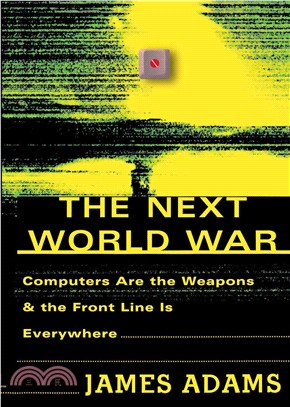It is a silent, invisible, and deadly weapons system. It can paralyze an entire nation without a single soldier being sent to war. We glimpsed its potential on television when surgical strikes on radar sites, electrical power plants, and command networks crippled Iraqi forces during the Gulf War. Now, in "The Next World War, " James Adams shows how a new chapter in military history is being written as the Information Age comes to the battlefield: to bigger and stronger, now add smarter. As increasingly sophisticated computers and microtechnology have become available, the concept of "conventional" warfare has changed. Technology has already made its way to the front lines: soldiers are now equipped, for example, with new "smart" technologies such as handheld computers that allow them to e-mail their commanders. There are devices that can sense an enemy's presence before the enemy is visible, by detecting body heat or by communication with satellites overhead. Robotic "bugs" can even be sent in swarms to sabotage weapons or subdue enemy soldiers. But the most significant and important use of information warfare won't be on the battlefield. The most devastating weapons will be those that target an enemy's infrastructure -- air-control systems, electrical grids, and communication networks, to name just a few potential targets. "Trojan horse" chips or viruses designed to accept and respond to commands from U.S. military intelligence can be installed in computers being sold overseas, making them vulnerable to attack. By hacking into computer systems, the United States could override programmed commands and thus shut down air traffic control systems, and open floodgates and bridges. Misinformation could even be broadcast, for example, by using imaging technology to simulate a television appearance by an enemy nation's leaders. This type of combat puts civilians at more risk than ever, as financial, communication, transportation, and other infrastructure systems become prime military targets. And information warfare puts the United States -- a nation increasingly dependent on technology -- in a position of both definite advantage and extreme vulnerability. In "The Next World War, " James Adams draws on impressive research as well as his lifetime of reporting on intelligence and military affairs to give us a chilling scenario of how wars will be fought in the new millennium -- and how much closer to home they might strike.












